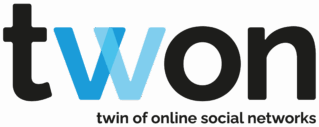The World Health Organization (WHO) has put forward guiding principles on online mental health for young people. In a newly published study, TWON-researchers integrate the WHO framework into a European context. They emphasize the impact of digital platforms and online social networks (OSNs) on mental health. The COVID-19 pandemic has amplified both the usage of digital technologies and a mental health crisis that is affecting young people in particular. Traditional services are increasingly losing touch with the young target group. Substantial challenges arise from the need to provide accessible and flexible mental health support while ensuring adherence to evidence-based guidelines.
The authors stress the special character of the European context: Typically, most young Europeans are growing up as digital natives, given the broad accessibility of advanced technology. Yet, there are important regional differences concerning the approach to mental health and the influence of social stigma related to the concept. Taking into account socioeconomic discrepancies and varying degrees of media literacy across Europe, this stresses the need for culturally sensitive mental health support. So far, online mental health services are often provided by independent organizations. But like other health-related services and products, the sector is in need of a sound regulatory framework to ensure both the quality and accessibility of services.
This highlights the need to gain a better understanding of platform mechanisms and the effects of algorithmic hyper-personalization and, therefore, the importance of our joint project TWON. Based on their research, the authors developed five core recommendations:
1. The specific European context must be considered.
2. Quality and accessibility of services must be balanced carefully.
3. Involving young people and families, leveraging their knowledge while enhancing digital literacy, is key.
4. The rise of AI must be addressed, concerning both the potential of AI for developing mental health support and the risks of biases and misinformation.
5. A regulatory framework must be developed to ensure safety, effectiveness, and ethical standards.
If you want to learn more about the issue, you can access the full article here!
